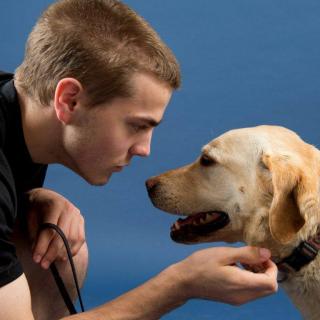Preventable Suffering: A UU with Autism Confronts "Coffee Hour"
Ramon Selove and his wife, Shellie Selove, are Our Whole Lives sexuality education facilitator trainers. They are members of the Unitarian Universalist Church of the Shenandoah Valley (VA).
by Ramon Selove
Meeting people, touching people, and general noise levels during and after a worship service can be real problems for me and others with autism. During services, just when things have quieted down and we are getting into the rhythm of the service, our minister asks us to stop and greet each other, shake hands, etc. It then takes the congregation a while to calm down again and get back into the service. I personally find that break disruptive. I really wish we wouldn't do it at all.
It is stressful for me to be in the presence of a large number of people and it is much worse when many conversations are going on at the same time. I sometimes come to church late so that I can avoid all the conversations that occur prior to the service. At the end of the service I usually remain in the seats instead of going to the "social area." Sometimes people come to talk to me (which I appreciate very much) and sometimes I just sit alone.
There are lots of people that I know well and care about. I want very much to talk to them. But the atmosphere of the social hour is almost impossible for me. I can't separate the conversation I am in from all of the others that are going on around me. Sometimes I just have to sneak out the back door and I feel bad about it because I know that there are people who want to connect with me. Our church has grown so much over the years that I now have a hard time attending at all.
I haven't figured out how to solve this problem for me, and maybe I have no business telling others how to solve it. Even so, I have some ideas. When the Autism Network International holds a retreat for people with autism, one thing they do is to use a color-coded name badge. The colors correspond to participants’ preferences in social interaction. Some want to be approached by others. Some only want to be approached by people they already know. Some do not want social interactions at all. The name badges help people honor each other’s wishes.
In our congregation, color-coding would be more complicated. It would need to cover not only openness to talking to people but also different levels of touch: “Hugs welcome.” “Handshakes only.” “Light pressure preferred.” “Deep pressure preferred.” The handkerchief code that developed in gay bars decades ago approaches the level of complexity that would be needed. Icons on name badges could indicate what an individual is comfortable with; I would probably keep several different badges in my badge holder so that I could choose the appropriate one for different days or times, such as during and after the service. Since most congregations already use name badges, the cultural change would be minimal.
There is, of course, a much simpler approach: Encourage everyone to "ask first." Unfortunately, it wouldn't work very well for most of us autistics. Trying to explain to person after person that I need plenty of warning before touch and that light touch irritates me but deep pressure is soothing, but I only really want to be hugged by people I know... the conversations about it are too stressful. It is easier to just sneak out the back. Come to think of it, I guess that's why the handkerchief codes developed in the first place.
I am not aware that any religious groups have tackled this issue. If we could develop something workable, it would have value in any congregation.
Next Steps!
The author’s son, Nathan Selove, also has autism. On YouTube, watch a video Nathan made to show how his service dog, Sylvia, “changed his life, became his best friend and showed him how to do more than just live with autism.” The video describes the Seloves’ legal and public awareness battle to ensure Nathan could have Sylvia with him in school.
The UUA offers information on accessibility in congregational life. Visit the blog site of EqUUal Access, a group working toward the full engagement of people with disabilities in UU communities and the broader society; read about EqUUal Access in UU World online (“Group works to make congregations more accessible,” January 6, 2014).
The Autism Society website offers a variety of ways to learn, connect, and more during April 2014, National Autism Awareness Month.
Sally Patton’s book Welcoming Children with Special Needs has useful ideas about full inclusion of all ages in UU congregations. The book is no longer in print but is offered in PDF format on the UUA website at no charge.

